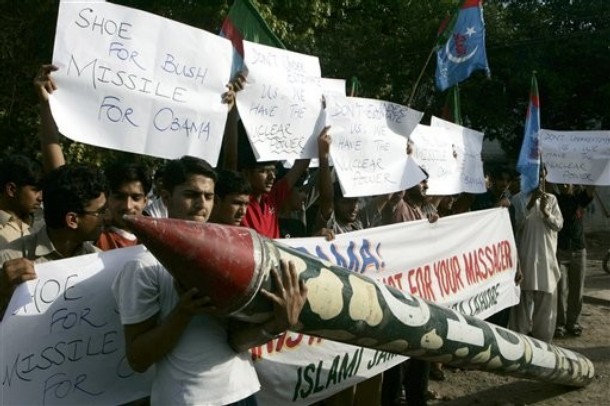Power Over Pakistan

Tony Blankley wonders:
How did it come to be that the government of the most powerful nation in the history of humanity (population 300 million plus, with a gross domestic product of $14 trillion, larger than next three economies - Japan, China and Germany - combined) confesses that its options are limited on a "mortal threat" to our nation?
I suspect this is on a lot of people's minds lately. How can the world's foremost power stand powerless before Pakistan. It's a great question - one that Leslie Gelb happens to answer directly in his book Power Rules (see our review here and our interview with Gelb here). The short version is that what Blankley wants here is untenable - the U.S. cannot impose its will on Pakistan short of near genocidal warfare. Instead we have to work within confines imposed by resources and morality.
Looking at the problem more broadly, one of the oft-repeated and clearly dangerous elements of the situation in Pakistan is the prospect of the Taliban getting their hands on a nuclear weapon. Obviously simply getting a weapon and successfully transporting it and detonating it are two very different things, but nevertheless, it would still be immensely dangerous. But I'm not aware of too many scenarios wherein the U.S. can play a decisive role in preventing this. Can we track every last weapon and move quickly enough to prevent a theft or transfer? That doesn't sound too plausible to me.
Update: The New York Times rounds up some experts on just what the U.S. should be doing re: Pakistan's nukes.
----
Photo Credit: AP Photo





